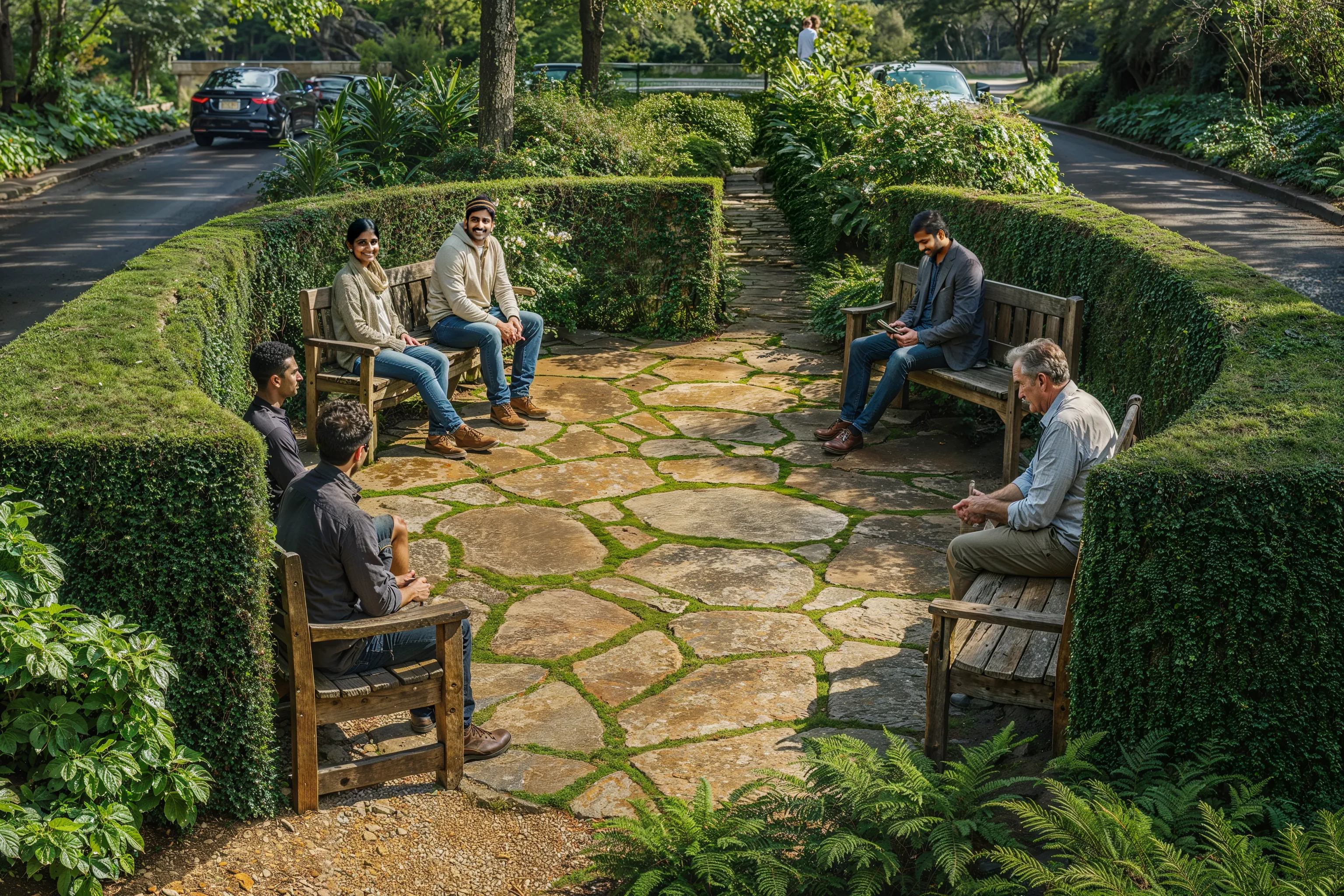Step into any Indian metro and the first thing that greets you is not silence, but sound. The constant honk of cars, the drone of air-conditioners, the buzz of construction, the chatter of crowds — cities today rarely pause. For millions, this unrelenting soundtrack has become background noise, something endured, tolerated, ignored. Yet beneath it lies a growing fatigue.
Noise isn’t just an irritant. It’s a health hazard. Studies link long-term exposure to urban noise with heightened stress, poor sleep, cardiovascular strain, and even reduced cognitive performance. In short: India’s noisy metros are taking more from us than we realise.
And in this landscape, the countryside emerges not simply as an escape, but as an antidote.
The Forgotten Luxury of Silence
Silence is not an absence. It is a presence. It amplifies the rustle of leaves, the call of birds, the rhythm of your own thoughts. In metros, silence is scarce, confined to the occasional gated enclave or the four walls of a soundproofed room.
The countryside reintroduces silence as a daily companion. Mornings don’t begin with alarms and traffic but with light filtering through trees. Nights aren’t disturbed by horns but deepened by the hum of crickets. In these moments, the nervous system rests, the mind slows, and life regains its balance.
For those who live with the hum of a city 24/7, this return to quietude feels like medicine.
Noise and the Cost of Wellness
Urban India often measures wellness in gym memberships, spa days, or weekend retreats. But if the air you breathe is heavy and the noise never ceases, those gestures are temporary reliefs at best.
The countryside, by contrast, makes wellness systemic. Lower decibels, cleaner skies, more open space — these are not luxuries but defaults. Children grow up with sharper attention spans, elders rest more deeply, and families rediscover the ease of conversation when they aren’t competing with background noise.
Silence, it turns out, isn’t just pleasant. It’s preventative care.
A Shift from Escapes to Habitats
For years, city dwellers treated the countryside as a holiday backdrop — a place to visit, not to live. But as metros become louder and denser, many are reimagining the countryside not as a temporary retreat but as a permanent counterbalance.
This shift is not about abandoning the city, but about refusing to let it dictate every aspect of life. A second home an hour or two away becomes a pressure valve — a place where weekends restore, and weekdays can even stretch when remote work allows. For families, it offers children the freedom of play without traffic fears, and for professionals, it offers the headspace to think beyond survival.

Where Aranyaka Creates Stillness
At Aranyaka, we believe silence is not a luxury to chase, but a right to reclaim. Our gated communities in Naugaon — Araville Farms, Twin Lakes, and Sway — are designed with this principle in mind.
Wide courtyards, tree-lined avenues, and lakefront breezes ensure that sound is shaped by nature, not machinery. Security, CLU approvals, and infrastructure transparency provide peace of mind, while the environment itself provides peace of body and soul.
Here, wellness is not a retreat purchased once a year. It is built into the everyday — in the air, the quiet, and the design of life itself.
The Real Antidote
India’s metros may continue to grow louder, taller, and faster. But the antidote will not be found within them. It lies just beyond their borders, in spaces where silence is still a natural resource.
The countryside does not compete with metros. It heals them. It restores balance to families, strengthens communities, and offers generations a chance to live without noise shaping their every thought.
For those ready to listen, the countryside’s silence speaks volumes.
